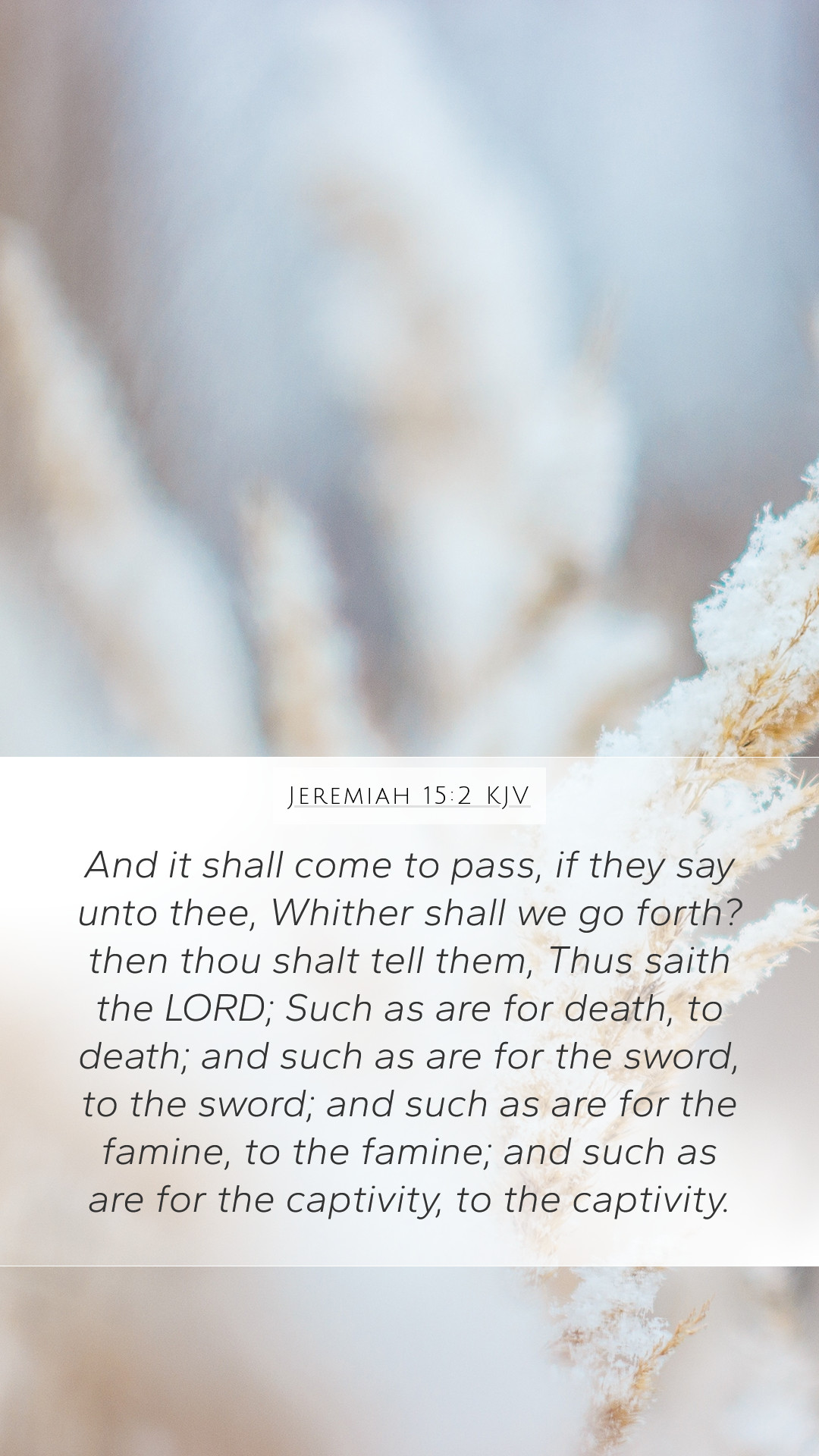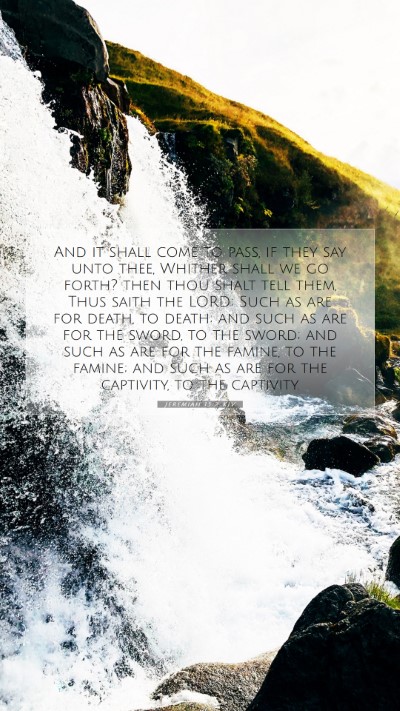Understanding Jeremiah 15:2
What does Jeremiah 15:2 mean? This verse provides profound insights into God's judgment and mercy, as well as the challenges faced by His prophets. In Jeremiah 15:2, we witness God's response to the pleas of the prophet concerning the fate of Israel, emphasizing the nature of God’s justice intertwined with His grace.
Bible Verse Analysis
In this verse, Jeremiah speaks about the consequences of apostasy among the people of Israel. The heart of the message is found in how God instructs Jeremiah regarding those who seek refuge or counsel and how their paths will be determined by their actions.
Contextual Background
The historical context of Jeremiah's prophecies is vital for understanding this verse. God appointed Jeremiah during a time of moral decay and impending judgment upon Judah. His messages warn against idolatry and the consequences that follow rebellion against God.
Jeremiah 15:2 - Text and Interpretation
"And it shall come to pass, if they say unto thee, Whither shall we go? then thou shalt tell them, Thus saith the Lord; Such as are for death, to death; and such as are for the sword, to the sword; and such as are for the famine, to the famine; and such as are for the captivity, to the captivity."
Biblical Exegesis
As interpreted by various commentaries:
- Matthew Henry: Henry expands on the inevitability of judgment, pointing out that God delineates the fates of the Israelites based on their responses to His call. This illustrates God’s sovereignty and the reality of divine prophecy.
- Albert Barnes: He emphasizes the distinction God makes between those destined for various forms of punishment, underlining the severity of the consequences that await disobedience and rebellion against God's commandments.
- Adam Clarke: Clarke provides insight into the emotional aspect of Jeremiah’s lamentations as he delivers unwelcome messages, pointing out how such prophetic declarations were both a burden and a divine calling.
Key Themes
- Judgment: The verse reflects God's justice in punishing the unfaithful.
- Prophetic Responsibility: It showcases the burden placed on prophets to relay difficult truths.
- Divine Sovereignty: The fate of individuals is under God’s control, affirming His omniscience.
Applying Bible Verses to Daily Life
This passage encourages believers to reflect on their choices and the consequences that come with them. It serves as a reminder of God's moral order and the serious nature of sin.
Cross References
- Deuteronomy 28:15-68 - Curses for disobedience.
- Ezekiel 18:30-32 - Call to repentance and avoidance of judgment.
- Lamentations 3:33 - God does not willingly afflict or grieve anyone.
Conclusion
Jeremiah 15:2 resonates with themes of judgment, prophetic duty, and divine sovereignty. For those studying the Bible, understanding Scripture in light of this verse encourages deeper engagement with God’s Word, revealing not just the nature of God’s justice, but also His overarching desire for His people to return to Him.
Bible Study Resources
If you’re interested in further understanding of Scripture, consider utilizing various Bible study tools, participating in Bible study groups, or exploring online Bible study platforms that provide access to commentaries, guides, and lessons on difficult passages.


